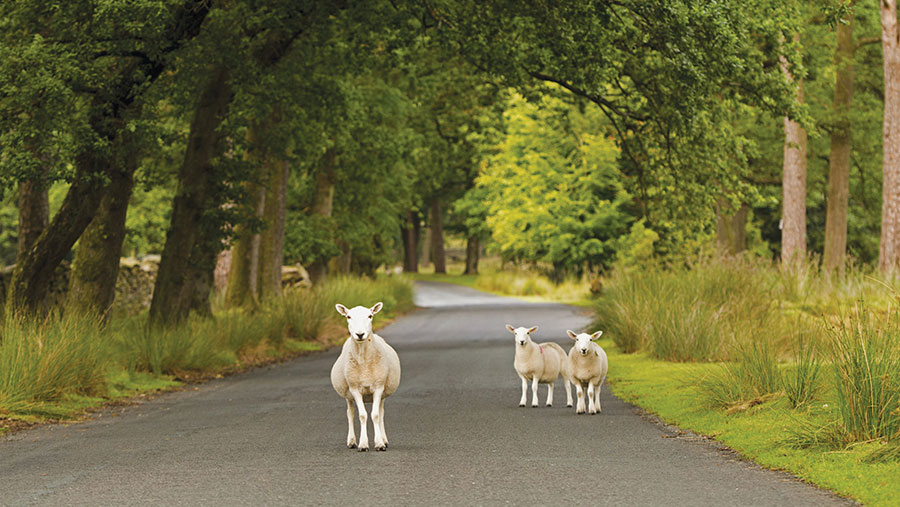Business Clinic: Should I increase our public liability cover?
 © FLPA/Wayne Hutchinson/Shutterstock
© FLPA/Wayne Hutchinson/Shutterstock Whether it’s a legal, tax, insurance, management or land issue, Farmers Weekly’s experts can help.
Here, Nigel Wellings of Acres Insurance Brokers advises on why a higher level of public liability cover may be prudent.
See also: Business Clinic – insurance implications of changing building use
Q. My insurance adviser is suggesting we increase our farm public liability insurance from £10m to £20m due to the fact we have grazing livestock in fields adjacent to a busy A-road.
Why do we need to do this and what are the cost implications?
The suggestion from your adviser is an important one and merits serious consideration.
For any farming business, the two most important insurances are employers liability (a legal requirement), which insures the business for accidents, illness and injury caused to employees, and public and products liability (not a legal requirement).
The second protects the farming business where it causes damage to property belonging to others and accidents and illness caused to other persons (third parties).
Common examples of public liability claims include livestock straying onto a road and causing an accident, mud deposited on a road causing an accident and a person being injured in some way while on land in your occupation.
Where stock strays onto a major road and causes an accident in which more than one member of the public is seriously injured, this does have the potential to push a claim over £10m.
Although claims of this magnitude are quite rare, insurance should be designed to cover extreme cases such as this.
Over the past two decades, the number of claims for such incidents has increased, as UK society has become more litigious.
The rise of claims management companies, along with no win, no fee arrangements, has helped fuel this culture.
Also, as medical care has developed, it is more likely now than say 20 or 30 years ago that someone badly injured in such an accident will survive.
At the same time, changes have been made by the government to how large personal injury claims for lifetime care and loss of earnings are calculated. In the past, higher interest/investment returns helped keep costs down.
However, with current low interest rates and investment returns, lump sum claims awards in the courts have increased. Already, a number of personal injury awards have been made in excess of £10m.
These may or may not have happened on farms but the chances are they could happen on a farm.
As a farming business, you are not exempt from being the target of such claims. It is therefore essential to protect your business as well as possible.
We have seen the farm insurance market generally move from a £5m public liability limit a few years ago to £10m becoming largely standard.
However, it is not enough though to blindly rely on limits set by your insurance company. Any competent farm insurance adviser should be raising the question at insurance renewal each year whether a £10m limit is sufficient for the risks facing your farming business.
Factors that can increase your level of risk include land adjacent to busy roads or urban areas, public access to your farm, a railway line through the farm and retailing food products direct to the public. The list is endless and needs careful consideration.
Because many farming businesses operate as sole traders or partnerships, they have unlimited liability in the event of a major claim.
In simple terms, if a claim goes over £10m, the business could be forced to pay the amount of claim in excess of £10m.
The cost of such additional insurance cover is not high. Recent quotations to increase public liability from £10m to £20m have started from £270.
This will increase depending on the size and complexity of your farming business. For many farming businesses the additional cost is easily justified.
Do you have a question for the panel?
Outline your legal, tax, finance, insurance or farm management question in no more than 350 words and Farmers Weekly will put it to a member of the panel. Please give as much information as possible.
Send your enquiry to Business Clinic, Farmers Weekly, RBI, Quadrant House, The Quadrant, Sutton, Surrey SM2 5AS.
You can also email your question to fwbusinessclinic@rbi.co.uk.

